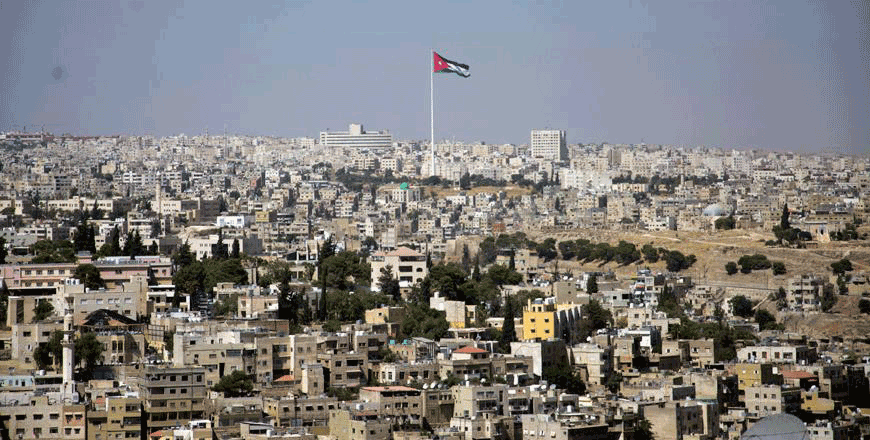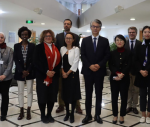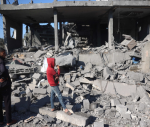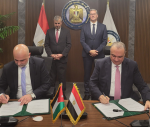You are here
Razzaz speaks about economic hurdles at Council of Arab Central Banks meeting
By JT - Sep 18,2018 - Last updated at Sep 18,2018
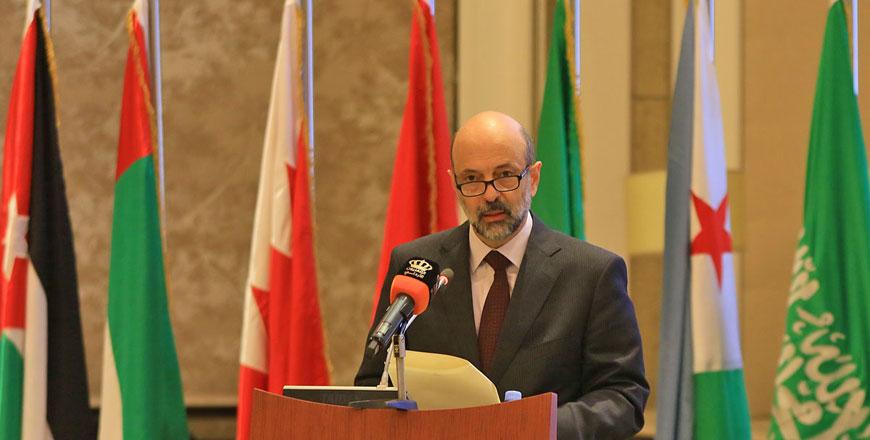
Razzaz delivered a speech at the opening of the 42nd session of the Council of Arab Central Banks and Monetary Authorities’ Governors meetings in Amman, on Monday (Petra photo)
AMMAN — Prime Minister Omar Razzaz on Monday said that the political and economic challenges facing the Arab countries require “exceptional efforts” by governments and the private sector to contain them, achieve sustainable growth and create more job opportunities.
Razzaz’s remarks came at the opening of the 42nd session of the Council of Arab Central Banks and Monetary Authorities’ Governors meetings in Amman on Monday, the Jordan News Agency, Petra, reported.
“The meeting took place under tough conditions full of political, economic and social challenges that had a profound negative impact on our Arab countries, accompanied by high uncertainty, a decline in the movement of intra-regional investments and a decline in the region’s status as a destination for international investments, which were exacerbated by the waves of refugees that had severe repercussions on host communities, including slow growth and rising unemployment, particularly among youth,” Razzaz added.
Razzaz stressed that Arab central banks are qualified to play an important role in reducing the internal and external economic risks, and to find effective mechanisms and policies that absorb these crises and reduce their effects.
He also praised the significant progress achieved by the Arab monetary bodies in keeping pace with global banking and financial developments.
At the local level, Razzaz said that Jordan has been sufering the ramifications of current regional circumstances and the influx of about 1.3 million Syrian refugees into the Kingdom, which put enormous pressure on the Kingdom’s infrastructure, especially in the health and education sectors. He also highlighted the closure of Jordan’s border with Iraq from mid 2014 until late 2017 and with Syria since 2011 until present day, which severely hurt the Kingdom’s economy.
The prime minister also said that Jordan had gone a long way in its bid to improve the economy and put it on a path of recovery as the budget deficit fell from 3.2 per cent of the GDP in 2016 to 2.6 per cent in 2017.
He pledged to take whatever measures necessary to guarantee that the deficit is cut to 1.8 per cent of GDP by the end of this year, buoyed by a rebound in tourism and national exports that are back on the path to achieving positive growth rates.
He added that strengthening the fundamentals of macroeconomic, up scaling productivity levels and achieving comprehensive and sustainable development are closely linked with the policies of the financial sector, where achieving financial and monetary stability is one of the basic pillars which the central banks seek to achieve.
Razzaz said that Jordan put in place the appropriate frameworks, reinforced the necessary incentives and adopted a national strategy to promote financial inclusion. He pointing out that Jordan has given priority of financing to the small and medium enterprises sector by raising the necessary funding for the sector through competitive interest rates, as well as long-term and low-interest financing programmes for sectors of industry, tourism, renewable energy, agriculture, information technology and engineering consulting.
Related Articles
AMMAN — The financial reform programme, supported by the International Monetary Fund’s (IMF) Extended Fund Facility (EFF) arrangement, seeks
AMMAN — International Monetary Fund (IMF) staff and the government have reached a staff level agreement on the second review with Jordan und
AMMAN — Jordan has maintained its ‘BB-’ Long-Term Foreign-Currency Issuer Default Rating (IDR) with a stable outlook, according to Fitch Rat


